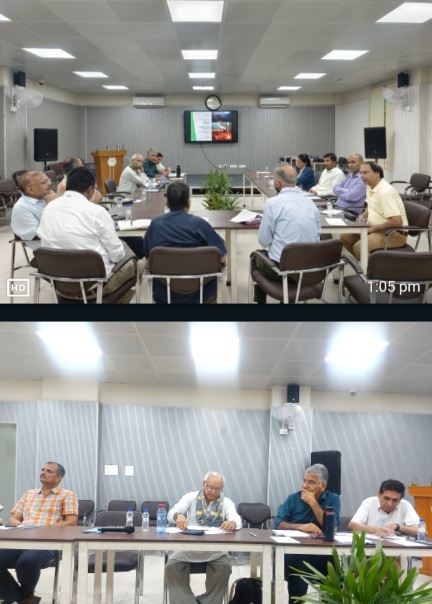Experts Call for Advanced Fire Management and multipronged strategy to Save Himalayan Ecosystems
Dehradun: Forest experts at a roundtable hosted by the Doon Library and Research Center stressed that better-equipped forest staff, responsible locals, and prompt fire prevention services could significantly reduce the devastating impact of forest fires in the Himalayan states.
Prof. B.K. Joshi, Chairman of the Doon Library and Research Centre, urged immediate action to tackle these fires.
Prof. S.P. Singh, founding Chairman of CEDAR, emphasized the need for research on the aftermath of forest fires, including human-fire interactions and plant adaptations.
Dr. Rajeev Bhartari, former PCCF and HoFF of Uttarakhand, stressed community involvement in fire management plans.
Drawing from his experiences in the US and Canada, he called for focused workshops to gather diverse expert insights.
A.R. Sinha, former PCCF, highlighted the need for quality safety gear for forest guards and community firefighters, and timely fund releases for firefighting.
He noted that biomass buildup worsens fire severity, affecting soil and groundwater.
Anoop Nautiyal from the SDC Foundation urged the implementation of 2022 CEDAR workshop recommendations and stressed informing political leaders about the impacts of forest fires for better decision-making.
Pankaj Joshi of WWF-India and Dr. Gajendra Rawat of USAC emphasized the role of remote sensing technology in detecting fire hotspots and improving fire management.
They suggested incentivizing institutions like Van-Panchayats to protect against fires.
Beeju Negi, leader of the Beej Bachao Andolan, spoke on the severe impact of forest fires on underground ecosystems, stressing the need for comprehensive fire management and ecological restoration.
Dr. Vishal Singh, Executive Director of CEDAR, and C.S. Tewari of Doon Library, concluded the roundtable by stressing the complexity of fire management and the need for collaborative efforts to prevent future catastrophic fires.




